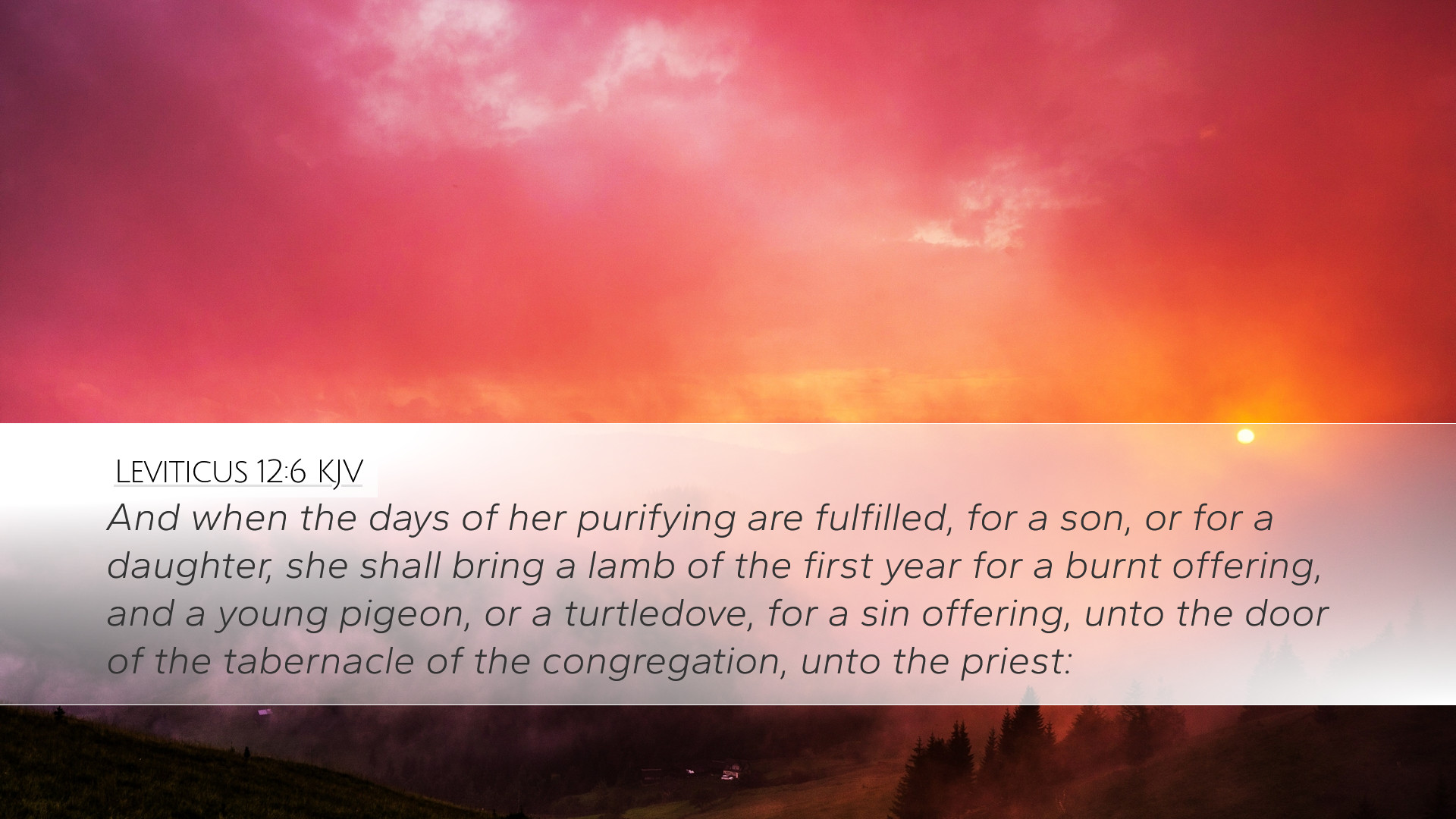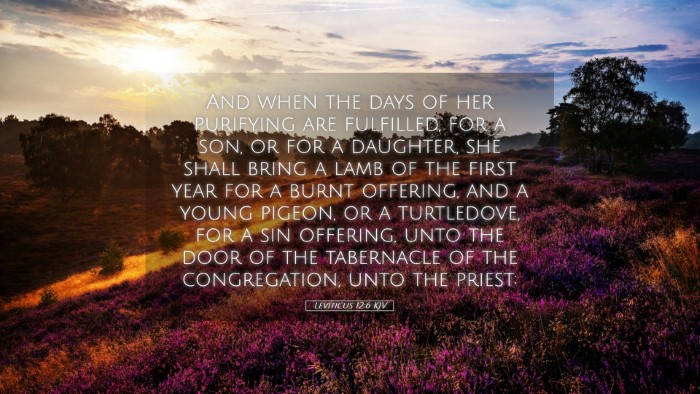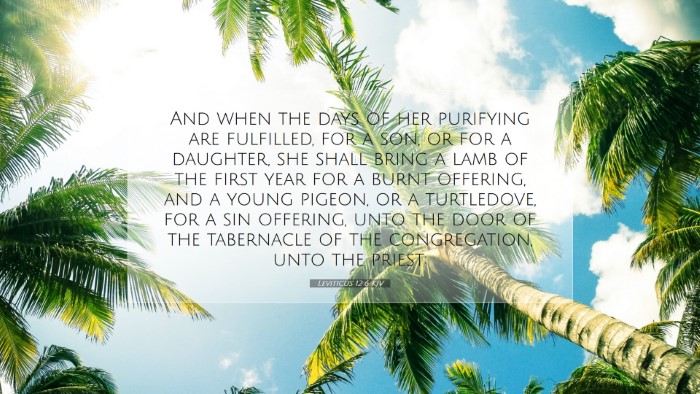Commentary on Leviticus 12:6
Leviticus 12:6 states:
"And when the days of her purifying are fulfilled, for a son or for a daughter, she shall bring a lamb of the first year for a burnt offering, and a young pigeon, or a turtledove, for a sin offering, unto the door of the tabernacle of the congregation, unto the priest."
This verse addresses the purification ritual required for a woman after childbirth. It reflects the broader themes of cleanliness, holiness, and the proper approach to God, pivotal in the Levitical laws.
Understanding Purification after Childbirth
In examining this scripture, we observe an essential Jewish cultural practice outlined in the law. The law dictated the purification rites a woman must undergo following childbirth. According to Matthew Henry, this signifies not just the physical act of giving birth but also encapsulates the spiritual and moral dimensions of such life events.
Role of Sacrifice in Purification
The offerings required - a lamb for a burnt offering and either a young pigeon or turtledove for a sin offering - are critical components of this process. Albert Barnes notes that the lamb represents total dedication and consecration to God, while the sin offering acknowledges the sinfulness inherent in human nature, even in the act of bringing forth life. This juxtaposition reflects a deep-seated understanding that childbirth, while an act of divine blessing, is also accompanied by the recognition of human fallibility.
Significance of the Offerings
-
Burnt Offering: This offering symbolizes complete surrender and devotion to God. It points to the desire for holiness and acceptance before the Lord.
-
Sin Offering: The requirement of a sin offering highlights the belief that even joyous events, like childbirth, are tainted by the fallen nature of humanity. Adam Clarke elaborates that this reflects the biblical principle that all humans are born into sin and thus require atonement.
Spiritual Reflections on Childbirth
The birth of a child is often seen within a cultural lens as the greatest joy; however, it also brings a need for redemptive acknowledgment. According to Henry, this duality in the experience of childbirth reminds us that even the most celebrated events require humility and repentance before God. This understanding is essential for pastors and theologians as it emphasizes that God's grace is vital through every stage of life.
The Role of the Priest
It is important to note that the woman must present her offerings at the door of the tabernacle to the priest. This signifies a public acknowledgment of her purification process, reinforcing the community aspect of faith. Barnes emphasizes that engaging the priest symbolizes our need for mediation between us and God, echoing biblical truths that only through intercession can we fully approach the divine.
Application for Contemporary Believers
For today’s believers, the insights from Leviticus 12:6 translate into several applicable principles:
-
Recognition of Holiness: Understanding that all aspects of life, even the joyous ones like childbirth, require a return to God's holiness.
-
Importance of Sacrifice: Realizing the value of offerings, not merely in the form of material possessions but as an act of dedication and contrition.
-
Community and Faith: The communal aspect of faith practices reminds believers of their interconnectedness and responsibility towards each other in maintaining a spiritual walk before God.
Conclusion
Leviticus 12:6 serves as a meaningful reminder of the importance of purification, sacrifice, and the pursuit of holiness following significant life events. Approaching God in acknowledgment of His demands for holiness not only enriches the individual’s spiritual journey but also fortifies the community of believers. Theologically, it emphasizes humanity's need for ongoing repentance and intercession, central to the Christian faith.


